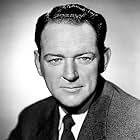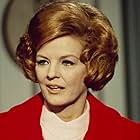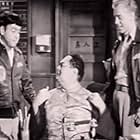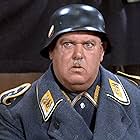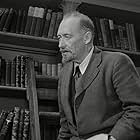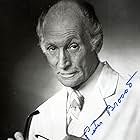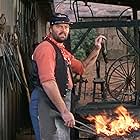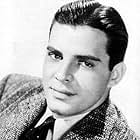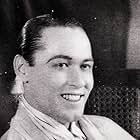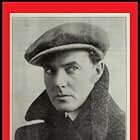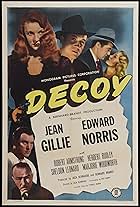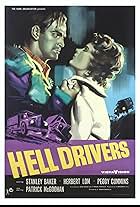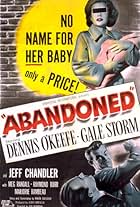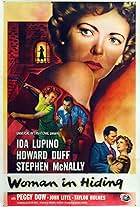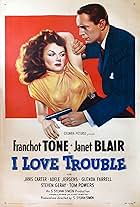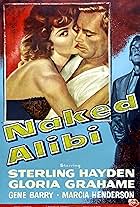The Babel of foreign and regional accents in The Argyle Secrets seems too exotic overdone until you learn that Cy Endfield directed this short, cheap thriller from his own radio play. There, probably no more than four actors took the many and generic parts, distinguishing them with funny voices. Movies can't get away with that, so a roster of character players several of them familiar from 50s television was rounded up to fill out the cast. Since the stars are William Gargan (a couple of seasons as Martin Kane, Private Eye) and Marjorie Lord (Make Room For Daddy), with Barbara Billingsley (Leave It To Beaver) visible to those who don't blink, viewers should know better than to expect The Big Sleep.
Actually, The Maltese Falcon is the better template, of which The Argyle Secrets resembles a fifth-generation knockoff. The object in demand is a book called The Argyle Album, a detailed list of war profiteers that's being used for blackmail. A famous investigative columnist, in hospital, tells his younger colleague Gargan about it shortly before he expires, either of poison or a scalpel plunged into his pajamas. In tracking down the album, Gargan meets up with and fends off a motley of grotesques, including femme fatale Lord.
By no stretch of hyperbole can it be called good it's coarse and jumpy but now and again it shows flashes of talent (Endfield, two years later, would direct the much better The Underworld Story). There are some neat shots of the waterfront at night (the city's unspecified, but Boston comes to mind) and a tense and well-photographed sequence where an acetylene torch burns through a metal gate behind which Gargan has locked himself for safety.
Alas, Gargan is foisted off as an energetic young turk of the fourth estate, even though at the time he was 42 and looked at least 10 years older. He had started in movies in 1917, chalking up a more than respectable list of credits, but what charisma he may have once displayed had long since dissipated. Sad that the Indian Summer of his career would be spent in those lesser mediums of radio and newfangled TV. But he earns praise for spending the last years of his life, following a laryngectomy, working for the American Cancer Society.


